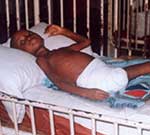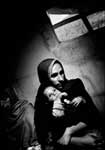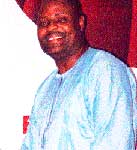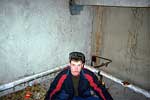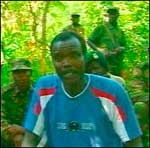From the Daily Sun, Nigeria’s King of the Tabloids:
Too young to fathom out what actually occurred to him, Ndubuisi who had passed out during the incident came around to ask the grim question: What happened to my leg? Up till date, he is yet to know what exactly had happened to his leg, hence he continues to ask questions.
Moved to tears, his father, Emmanuel said the boy simply said: “ Daddy a lorry broke my leg, why not tell the doctor to repair it fast I want to go to school tomorrow.” Emmanuel replied that the doctor would do that immediately- a vein assurance.
Here.

